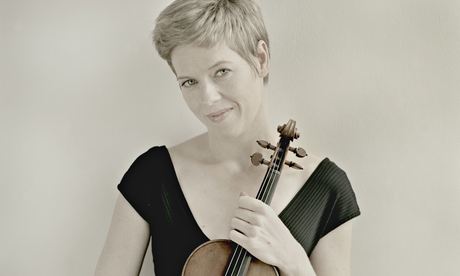
Though all have flourishing solo careers, violinist Isabelle Faust, pianist Alexander Melnikov and cellist Jean-Guihen Queyras are an established piano trio in all but name. In fact, they combine with a unity of purpose rare in such ensembles. There were times tonight when Faust and Queyras could have been two manifestations of a single musician.
Everything in this programme was informed by historic performance techniques, and the string players' sparing vibrato and light bow strokes meant that all three works sounded more reticent and darker than conventional modern-instrument performances would have them. Melnikov was incisive and fantastically colourful, the piano bubbling like clear water beneath the grainier strings; but a modern Steinway grand with the lid up was always going to have to hold back when teamed with a violin and cello strung with old-fashioned gut. Often this trio performs with Melnikov on a fortepiano, which would have levelled the field somewhat; but for some reason they did not here.
Having established understatement as the default, the details became all the more telling. The end of Haydn's brief D major trio, Hob XV/24, had a new sweetness, as if it were coming from a music box in the next room. Beethoven's E flat trio, Op 70 No 2, balanced calm, churchy-sounding passages with episodes in which Faust's tight vibrato made her violin sound uncomfortably forceful; the explosion of exuberance in the finale felt like a well-earned release. They found greater freedom and still more colour in Schumann's Trio No 3, achieving almost instant intensity in the slow movement, capturing each fleeting mood of the third and clearly enjoying themselves in the finale. More Schumann – the slow movement of the Trio No 2 – provided a reflective encore, as lovingly, meticulously worked out as everything else.

